Possession of Switchblades, Daggers, Stilettos, Billy Clubs, Blackjacks and Brass Knuckles -Illegal in New Jersey
Contents
A New Jersey statute prohibits an individual from “knowingly” possessing certain weapons, including a gravity knife, switchblade knife, dagger, dirk, stiletto, billy, blackjack, and metal or brass knuckle “without any explainable lawful purpose”. A violation of this statute is a crime of the fourth degree.
Embedded in the law is a presumption that the enumerated weapons are possessed for an unlawful purpose. The statute, however, allows an accused to come forward with an explanation of a lawful purpose. Thus, if a defendant who has been charged with a violation of this statute can show that there was an explainable lawful purpose associated with his possession of a specified weapon, the burden returns to the government to prove beyond a reasonable doubt that the possession of the weapon was for an unlawful purpose.
In order to establish an explainable lawful purpose, “any” evidence or “very slight” evidence or “some” evidence will suffice. Moreover, the evidence can come “from whatever source” , including the government’s case.
Are Brass Knuckles Illegal in NJ?
In New Jersey, brass knuckles are officially recognized as weapons. While they may be used defensively in some situations, they can also be seen by law enforcement as offensive weapons and, consequently, their possession is illegal. The penalties associated with having brass knuckles can vary depending on the circumstances, but can range from fines to incarceration.
It is important for individuals to remember that owning or possessing brass knuckles carries a degree of risk and danger and should not be taken lightly. Not only could it lead to a criminal record, but people may find themselves in dangerous situations or have their weapon used against them if they are unprepared or unaware of the street rules and regulations in regard to carrying such items. It is always best to do thorough research into the local laws before making any decisions about owning any weapons.
Are Switchblades Illegal in NJ?
The legality of switchblades, or automatic knives, in New Jersey is complex. While the state law does not specifically prohibit them, certain local ordinances may make it illegal or limit their use. In addition, federal laws on carrying and using switchblades may also apply. It’s important to be aware of all laws and regulations concerning these knives before deciding to carry or use one.
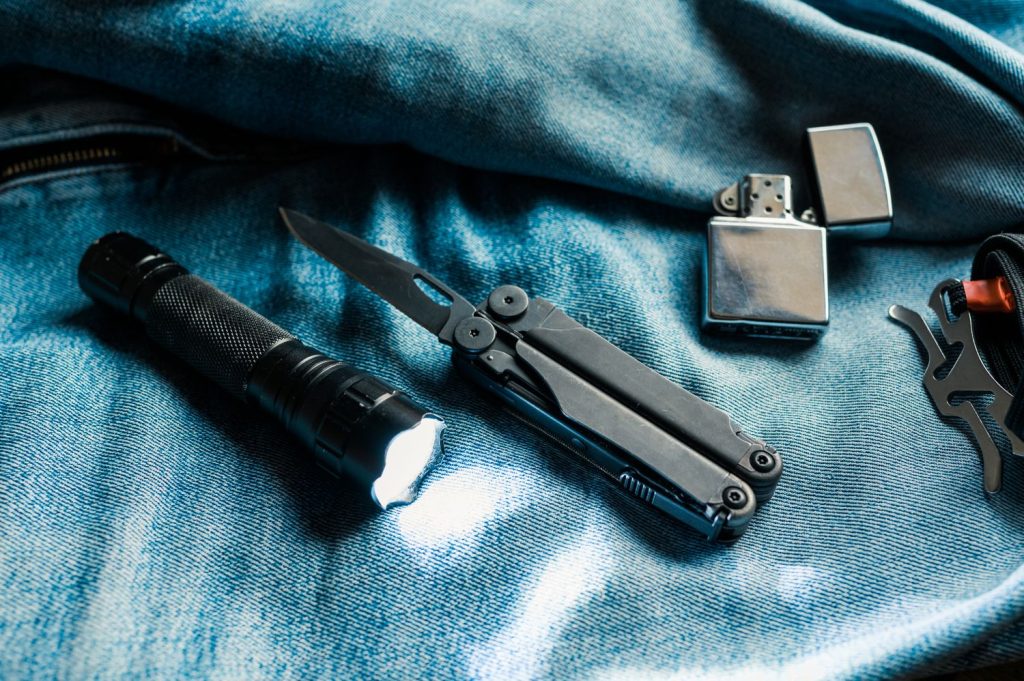
It’s also important to note that even if switchblades are legal in your area, they could still be considered by many as dangerous weapons and should be treated with respect and caution. Additionally, it is crucial to recognize that even though these knives can be used for utilitarian purposes such as opening boxes, they are primarily seen as weapons and must always be used responsibly.
Ultimately, when deciding whether to own, carry, or use a switchblade knife, it’s best to err on the side of caution and become educated on all applicable laws and regulations before doing so.
Are Stilettos Illegal in NJ?
In New Jersey, the legality of wearing stilettos is a complicated matter. Many people consider them fashionable and enjoy wearing them, but safety concerns have caused some states, including New Jersey, to pass laws prohibiting their use in certain contexts. While these laws vary from state to state, in New Jersey, it is generally prohibited to wear stilettos on any public property, such as sidewalks or roads. Additionally, most places of business do not allow customers to wear stilettos for safety reasons.
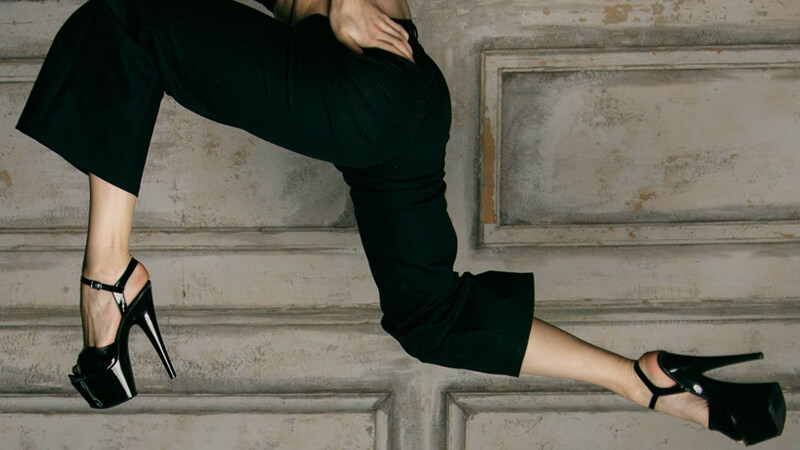
Although these laws intend to protect people from injury, they can be frustrating for those who want to express themselves through fashion. Ultimately, it’s important to consider safety when deciding whether to wear stilettos. Wearing them in unsafe locations increases the risk of harm and ultimately prevents us from enjoying the freedom of fashion without concern.
Are Blackjacks Illegal in NJ?
In New Jersey, the possession of blackjacks is prohibited. This means that it is illegal to carry a blackjack, even if you don’t intend to use it in an unlawful manner. This law exists to protect people from the potential harm that can be caused by these weapons.
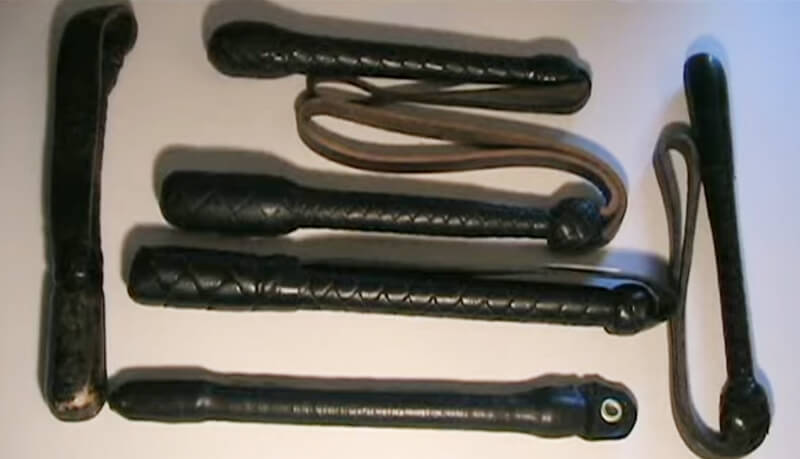
Blackjacks have long been associated with criminals, and their usage can cause serious injury or even death if used recklessly. It is essential that we respect this law and understand why it exists. It is important to ensure our safety and the safety of others by refraining from carrying or using weapons such as blackjacks. Let’s all work together to keep New Jersey safe.
New Jersey 2C:39-3
New Jersey has strict laws in place to regulate the possession and use of certain weapons such as switchblades and brass knuckles. According to N.J.S.A 2C:39-3 “Prohibited Weapons and Devices”, it is illegal for any person in the state to knowingly have in their possession any switchblade knife, gravity knife, billy, sand club, sandbag, metal knuckles, or slungshot as weapons without lawful purpose. Penalties for unlawful possession can include fines, imprisonment, and loss of firearms privileges.
It is also important to note that not all switchblades and brass knuckles are illegal. In some cases, these weapons may be allowed if they are needed for a lawful purpose such as employment or recreation. However, the burden of proof falls on the individual and they must be able to demonstrate that their possession of such a weapon is justified.
Understanding the laws regarding possession of certain weapons is essential in order to stay safe and compliant with the law. If you have any questions about what types of weapons are legal to possess in New Jersey, it’s important to contact an experienced attorney who can provide the answers you need.
Summary
When it comes to laws regulating the possession of certain weapons in New Jersey, the burden of proof lies with the government when an individual has been charged with a violation. The law specifically prohibits individuals from “knowingly” possessing enumerated weapons, including gravity knives, switchblade knives, daggers, dirks, stilettos, billies, blackjacks, and metal or brass knuckles, without any explainable lawful purpose.
If the accused can show that their possession was for a lawful purpose, then the burden of proof returns to the government to prove beyond a reasonable doubt that their possession was for an unlawful purpose. This burden is eased by the fact that the government only needs minimal evidence to establish an explainable lawful purpose. This evidence can come from any source, including the government’s case.
While this law imposes limits on what an individual can possess when it comes to certain weapons, it also recognizes an individual’s right to explain why they are possessing these weapons, should they choose to do so. This provision ensures that all members of the public will be treated fairly and equally.

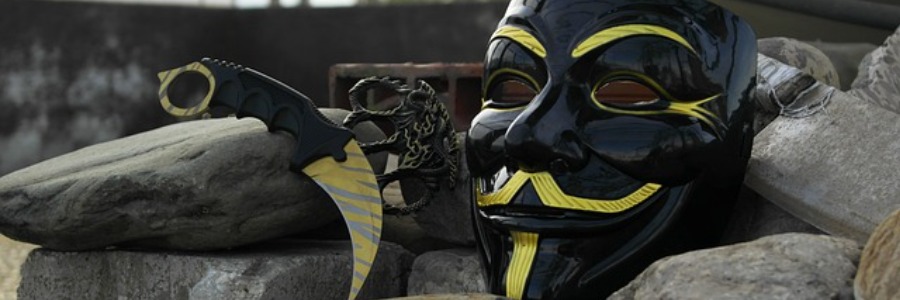
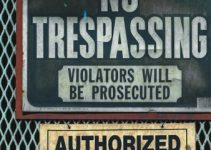


I remember reading a news article about a case in New Jersey where a man was arrested for possessing a switchblade knife. The man claimed that he had the knife for self-defense purposes, as he worked in a high-crime area and wanted to ensure his safety. However, the court ruled that his reason for possessing the switchblade did not qualify as an “explainable lawful purpose” under the state statute.
The case sparked a debate about the interpretation of the law and whether it was too strict. Some argued that individuals should have the right to carry certain weapons for self-defense, especially in dangerous areas. Others believed that the law was necessary to prevent crimes and protect public safety.
Ultimately, the man was convicted and faced penalties for possessing the switchblade knife. This case serves as an example of how possession of certain weapons can lead to legal consequences, even if the individual claims to have a legitimate reason for carrying them. It highlights the importance of understanding and abiding by the laws regarding weapon possession in